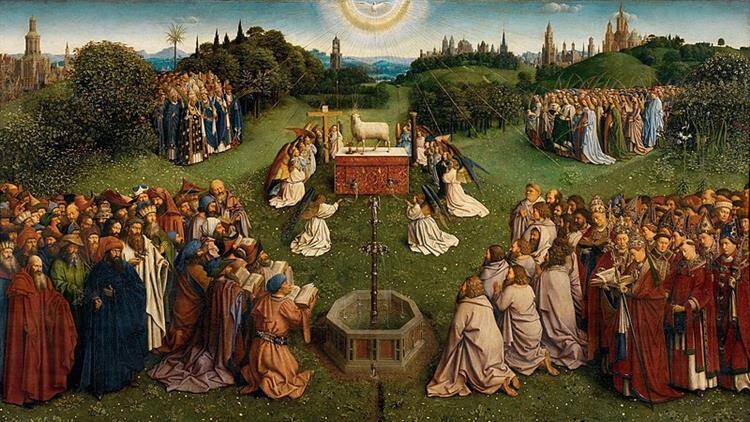A Homily for the Third Sunday of Easter
Acts 5:27-32, 40b-41 Revelation 5:11-14 John 21:1-19
Science does not produce creeds. It is more concerned with obtaining rather than retaining, learning more than we previously knew. Indeed, the closest science comes to a creed, a statement of belief, was created by an entertainer, not a scientist. But that has not kept it from playing a signal role in the modern psyche. Consider how many people can recite from memory the lines that Gene Roddenbery gave to James T. Kirk, the captain of the Starship Enterprise.
Space: the final frontier. These are the voyages of the Starship Enterprise. Its five-year mission: to explore strange new worlds; to seek out new life and new civilizations; to boldly go where no man has gone before!
Indeed, like other creeds, this one requires periodic revision. “Five-year mission” was later changed to “ongoing,” and “no man” has become the more inclusive “no one.” Each version nonetheless expresses a fundamental optimism about our connectedness to the cosmos. However long it may take, science assures us that the universe is ours for the taking.
Connectedness to the cosmos is also the role of religious rites, though in a very different way. Primitive people celebrated rites to express their relationship to the world. The words and gestures they performed communicated their fundamental connection to the deepest layers of reality, from which they had emerged and to which they would return.
Hence the Book of Revelation spells out the meaning of Christ’s resurrection from the dead by depicting a heavenly or cosmic rite. Its purpose is to proclaim that the prophecy of Daniel has been fulfilled:
One like a son of man.
When he reached the Ancient of Days
and was presented before him,
He received dominion, splendor, and kingship;
all nations, peoples and tongues will serve him (7:13-14).
Though in the book of Revelation it is not the “Son of Man” who comes but rather
the Lamb that was slain to receive power and riches, wisdom and strength, honor and glory and blessing (Rev 5:12).
A lot of qualities in that verse! The first four can be applied to earthly magnates, but here they celebrate a cosmic ruler, the risen Christ, who has received “honor and glory and blessing.” These latter three qualities are properly divine attributes.
If space is “the final frontier,” then St. John the Seer wants us to know that Christ already rules over it, hence the myriads of angels. In the ancient world, one of their essential roles was to rule over the stars and planets, rotating them in their courses.
Of course, this would mean nothing to us if we were not included. So, the text insists that no possible region of human life is left untouched.
Then I heard every creature in heaven and on earth
and under the earth and in the sea,
everything in the universe, cry out:
“To the one who sits on the throne and to the Lamb
be blessing and honor, glory and might,
forever and ever” (5:13).
When the early Church celebrated the Eucharist, it certainly considered itself to be doing more than preaching and singing. No, the Eucharist is a rite, a ritual that joins heaven and earth. The very cosmos comes to be contained in divine form.
Catholic and Orthodox, and many Protestant Christians as well, thus consider themselves to be conjoined to heaven when they worship. We are not hurtling prayers heavenward. No, in worship, Christ has already nestled us into his redeemed cosmos.
The Catechism of the Catholic Church teaches that
by the Eucharistic celebration we already unite ourselves with the heavenly liturgy and anticipate eternal life, when God will be all in all (§1326).
You may not be a scientist, but you nonetheless thrill to the sure confidence of science when you hear the words, “Space, the final frontier.” And you may not be a theologian, but you were schooled to expect heaven on earth when we celebrate Eucharist. For you have always heard your own elder insist, just before we sing the Sanctus, that in Eucharist the entire cosmos celebrates her Christ.
Through Christ the Angels praise your majesty,
Dominions adore and Powers tremble before you.
Heaven and the Virtues of heaven and the blessed Seraphim
Worship together with exultation.
May our voices, we pray, join with theirs
In humble praise, as we acclaim:
Holy, Holy, Holy Lord God of hosts...








